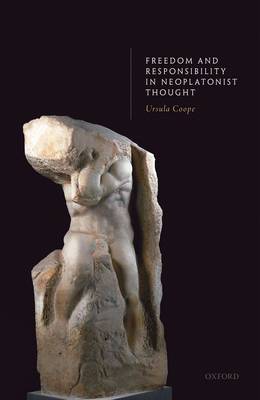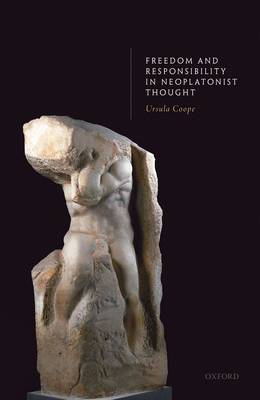
- Afhalen na 1 uur in een winkel met voorraad
- Gratis thuislevering in België vanaf € 30
- Ruim aanbod met 7 miljoen producten
- Afhalen na 1 uur in een winkel met voorraad
- Gratis thuislevering in België vanaf € 30
- Ruim aanbod met 7 miljoen producten
Zoeken
€ 161,45
+ 322 punten
Omschrijving
The Neoplatonists have a perfectionist view of freedom: an entity is free to the extent that it succeeds in making itself good. Free entities are wholly in control of themselves--they are self-determining, self-constituting, and self-knowing. Neoplatonist philosophers argue that such freedom
is only possible for non-bodily things. The human soul is free insofar as it rises above bodily things and engages in intellection, but when it turns its desires to bodily things, it is drawn under the sway of fate and becomes enslaved. Ursula Coope discusses this notion of freedom and its relation
to questions about responsibility. She explains the important role of notions of self-reflexivity in Neoplatonist accounts of both freedom and responsibility. In Part I, Coope sets out the puzzles Neoplatonist philosophers face about freedom and responsibility and explains how these puzzles arise
from earlier discussions. Part II explores the metaphysical underpinnings of the Neoplatonist notion of freedom (concentrating especially on the views of Plotinus and Proclus). In what sense, if any, is the ultimate first principle of everything (the One) free? If everything else is under this
ultimate first principle, how can anything other than the One be free? What is the connection between freedom and nonbodiliness? Finally, Coope considers in Part III questions about responsibility, arising from this perfectionist view of freedom. Why are human beings responsible for their behaviour,
in a way that other animals are not? If we are enslaved when we act viciously, how can we be to blame for our vicious actions and choices?
is only possible for non-bodily things. The human soul is free insofar as it rises above bodily things and engages in intellection, but when it turns its desires to bodily things, it is drawn under the sway of fate and becomes enslaved. Ursula Coope discusses this notion of freedom and its relation
to questions about responsibility. She explains the important role of notions of self-reflexivity in Neoplatonist accounts of both freedom and responsibility. In Part I, Coope sets out the puzzles Neoplatonist philosophers face about freedom and responsibility and explains how these puzzles arise
from earlier discussions. Part II explores the metaphysical underpinnings of the Neoplatonist notion of freedom (concentrating especially on the views of Plotinus and Proclus). In what sense, if any, is the ultimate first principle of everything (the One) free? If everything else is under this
ultimate first principle, how can anything other than the One be free? What is the connection between freedom and nonbodiliness? Finally, Coope considers in Part III questions about responsibility, arising from this perfectionist view of freedom. Why are human beings responsible for their behaviour,
in a way that other animals are not? If we are enslaved when we act viciously, how can we be to blame for our vicious actions and choices?
Specificaties
Betrokkenen
- Auteur(s):
- Uitgeverij:
Inhoud
- Aantal bladzijden:
- 302
- Taal:
- Engels
Eigenschappen
- Productcode (EAN):
- 9780198824831
- Verschijningsdatum:
- 16/06/2020
- Uitvoering:
- Hardcover
- Formaat:
- Genaaid
- Afmetingen:
- 160 mm x 236 mm
- Gewicht:
- 589 g

Alleen bij Standaard Boekhandel
+ 322 punten op je klantenkaart van Standaard Boekhandel
Beoordelingen
We publiceren alleen reviews die voldoen aan de voorwaarden voor reviews. Bekijk onze voorwaarden voor reviews.








